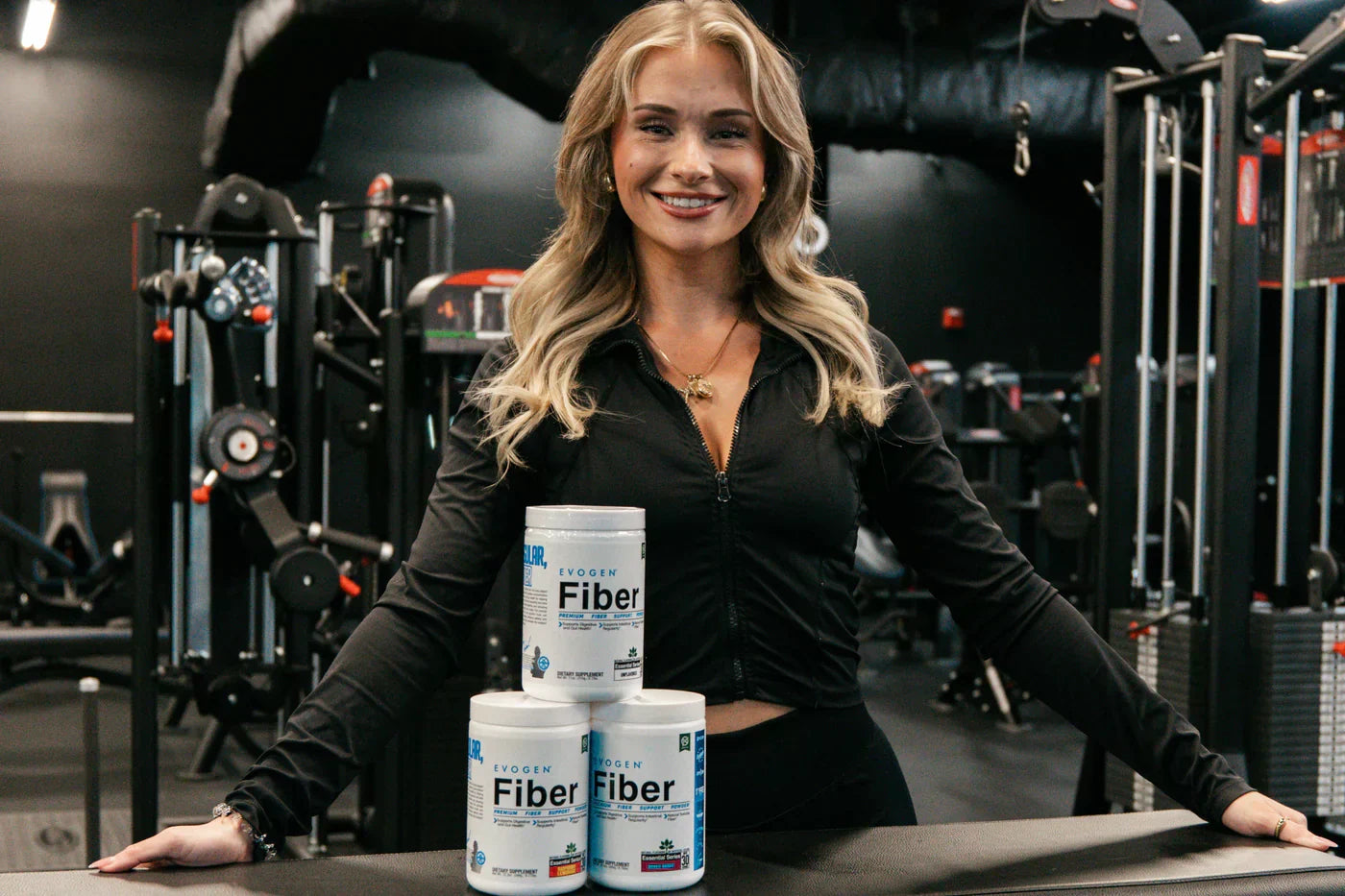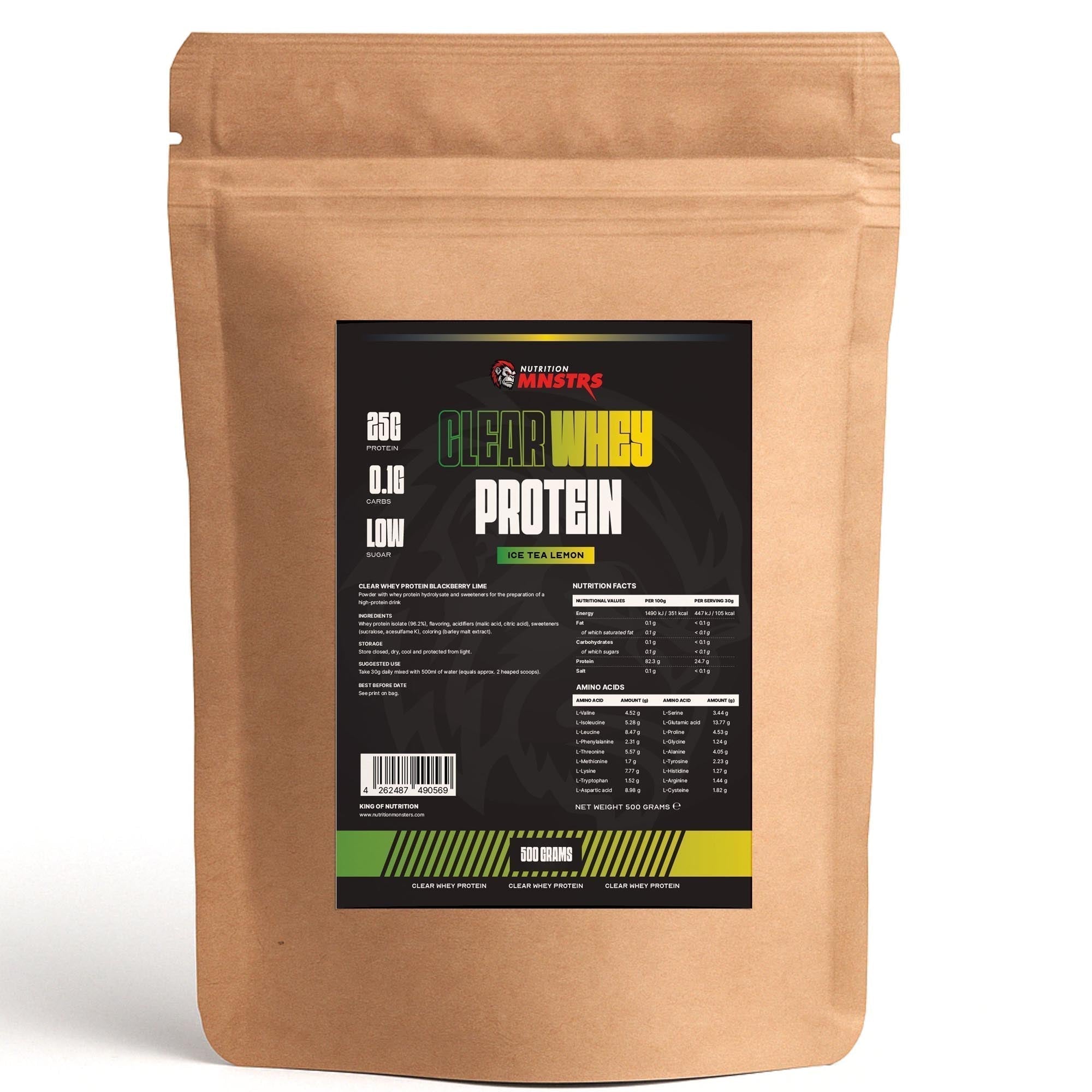As athletes, we often focus on our training, nutrition, and supplements. But unfortunately, you might be missing an important aspect of your diet and supplementation that can hinder your performance — fibers for athletes.
No, we're not talking about all the fun things like protein powders, creatine, testosterone boosters, or anything like that. If you don't get enough fiber, you're at a big disadvantage.
In this article, we dive deeper into how fibers for athletes can drastically improve your overall health and performance. If you want to stay ahead of the competition, you don't want to skip this information!
Disclaimer: This article is for informational purposes only and is not intended to treat or diagnose any condition. It is recommended to speak with your doctor before starting a training program, making changes to your diet, or adding new supplements to your current routine.
The role of dietary fibers for athletes
The fact is that fibers are incredibly important for athletes. If you want to experience better performance, have more energy, and recover faster, you need to take a close look at your fiber intake.
Many athletes don't realize that their gut health is directly connected to their athletic success. What fibers can do for athletes and the general population is impressive.
Let's take a closer look at some benefits of fibers for athletes when added to your nutrition and/or supplement plan.
1. Importance of Gut Health
Your intestines act as the control center for many systems in your body. A healthy gut helps you digest food better and absorb more nutrients. Good gut health can lead to fewer stomach and intestinal complaints during training and competitions.
The gut microbiome (small bacteria in your digestive system) plays an essential role in fighting inflammation and strengthening your immune system.
Your digestive system needs support to perform at its best. Eating fiber-rich foods supports healthy gut bacteria and can keep your gut barrier strong. During intense training, a strong gut barrier can prevent harmful substances from entering your bloodstream.
Your sports nutrition plan should include gut-friendly foods to maintain your performance level.
2. Energy Production
If you want to increase your energy levels, look at your fiber intake. Soluble fibers in food help keep your energy stable, both in the gym and during competitions.
This stable energy prevents spikes and drops that can harm your endurance.
Short-chain fatty acids formed from fibers help release glycogen (about 100 grams) from your liver. This is about 14% of the energy reserves you can use. Stable blood sugar means you can train harder and longer without "hitting the wall."
Overall, I see that athletes who consciously monitor their fiber intake achieve better results and complain less about energy loss.
3. Performance Benefits
A stable gut microbiome helps you absorb nutrients better and can boost your energy levels during training.
A daily fiber intake of 30 grams supports your performance by keeping your blood sugar levels stable during your workouts.
Athletes with a balanced gut microbiome often experience improved endurance and strength gains compared to those with poor gut health.
When your body needs to perform at its best, it requires dietary fibers to support your intensive training.
4. Recovery
Something many of my athletes didn't know is that fibers play a key role in recovery after training. Fiber-rich foods help reduce inflammation in your body after intense training sessions. This natural recovery process helps your muscles recover faster.
Although consuming proteins after training is ideal, it is actually fiber intake that supports gut health and speeds up nutrient absorption for faster and better recovery.
Note: smart timing of fibers is important. Eating fibers around your training keeps your stomach satisfied and helps your body recover.
5. Cholesterol and heart health
As an athlete, one muscle you can't ignore is your heart. Dietary fiber can keep your heart strong and reduce your risk of heart disease.
Research shows that sufficient fiber intake lowers bad cholesterol and can improve blood pressure.
6. Weight management and satiety
Fiber supports your body composition and helps maintain a healthy weight. A daily intake of 20-35 grams of fiber can quickly give you a feeling of fullness and prevent hunger attacks.
This is important if you need to stay in a specific weight class (such as in wrestling or bodybuilding) or keep your body mass lean for optimal performance.
Fiber-rich foods take more time to chew and digest, which can lead to better portion control. Smart athletes choose fiber-rich foods to feel full without extra calories.
How much fiber do athletes need?
Most athletes need 25-35 grams of fiber daily to keep their intestines healthy. The more calories you consume, the more fiber you need.
General recommendations vs. athletes:
| Criteria | General population | Athletes |
|---|---|---|
| Daily fiber requirement women | 25 g | 30-35 g |
| Daily fiber requirement men | 38 g | 40-45 g |
| Timing | Spread throughout the day | Avoid 2-3 hours before training |
| Average current intake | 10-15 g | 15-20 g |
| Minimum goal | 20 g | 25 g |
| Intake evaluation | Monthly | Weekly |
How do you focus on fiber as an athlete?
Adequate fiber in meals is important. There are two ways to get more fiber: through natural foods and through supplements.
Fiber-rich foods
- Oatmeal – 4 g fiber per cup, perfect as pre-workout
- Oranges – 3 g fiber, quick natural energy
- Brown rice – 3.5 g fiber per cup, ideal after training
- Sweet potatoes – 4 g fiber, good for muscle recovery
- Bananas – 3 g fiber + electrolytes
- Lentils – 15 g fiber per cup + plant-based protein
- Chia seeds – 10 g fiber per ounce + healthy fats
- Quinoa – 5 g fiber per cup + complete protein
- Apples with skin – 4.5 g fiber + natural sugars
- Black beans – 15 g fiber per cup + lean protein
- Almonds – 3.5 g fiber per ounce + healthy fats
- Broccoli – 5 g fiber per cup + minerals
- Raspberries – 8 g fiber per cup + antioxidants
- Green peas – 9 g fiber per cup + plant protein
Fiber supplements
Many athletes get only half of their daily requirement, making supplements convenient. Note:
- Choose clean supplements without artificial ingredients
- Start with small doses
- Mix powder into shakes or smoothies
- Avoid supplements with added sugars
- Keep 2-3 hours between fiber and other supplements/medications
- Drink enough water
- Be consistent in intake
Adequate fiber is crucial
As an athlete, you train hard. Quality nutrition and macros are essential. Fiber supports performance, recovery, and health.
A daily supplement like Evogen Fiber can help you stay full longer, reduce cravings, and keep your blood sugar stable.
Evogen Fiber Support Powder contains clinically studied ingredients such as psyllium husk, resistant maltodextrin, and inulin. Athletes coached by Hany Rambod, including Olympia champions, clearly see the value of fiber in their diet.
Sources:
- www.nifs.org
- digitalcommons.jsu.edu
- pubmed.ncbi.nlm.nih.gov
- pmc.ncbi.nlm.nih.gov
- pubmed.ncbi.nlm.nih.gov
- pubmed.ncbi.nlm.nih.gov
-
pmc.ncbi.nlm.nih.gov
Author:
Matt Weik, BS, CSCS, CPT, CSN, is the owner of Weik Fitness.
He is a globally recognized and productive writer. With a passion for creating content about health and fitness, Matt's work has appeared on thousands of websites, in over 100 magazines, and he has more than a dozen published books to his name.



